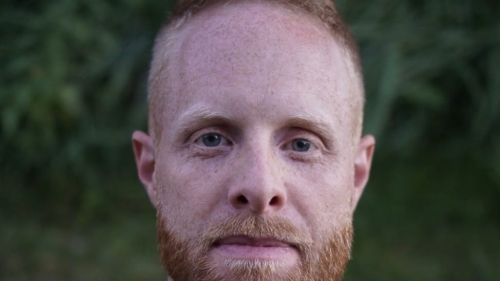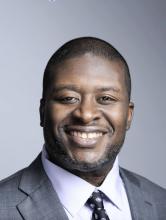Reed Swier and Pharoah Cranston
Systematic racism and disproportionality are real and tangible examples of racial inequities that exist in every aspect of our society, including school discipline policies. A recent report offered by the New York State Education Department (NYSED) demonstrates “...that exclusionary discipline in New York [Schools] is administered in a biased and inequitable manner.” An analysis of the United States Department of Education Civil Rights Data Collection (CRDC) findings revealed that “...Black students were disciplined at a higher rate [than white students]”, in addition to the fact that “...students with disabilities were more likely to be suspended [than general education students]. NYSED’s Safe Schools Task Force (SSTF) reveals that these disparities have persisted for many years in both New York State, and the nation as a whole. A 2019 resolution offered by the Board of Regents stipulated that similar discipline disparities exist not only for “...students with disabilities …[but also]...students who identify as LGBTQ (lesbian, gay, bisexual, transgender, queer, and/or questioning).”
New York State’s Civil Rights data offer greater insight in these school discipline disparities, revealing that on average, “... 23 days of instruction are lost due to out-of-school suspensions (OSS) for every 100 students, which rises to 32 days for American Indian/Alaska Native (AIAN) students and 47 days for black students.”
As these school discipline disparities and their wide-ranging consequences for students with disabilities, LGBTQ students, as well as Black, Indigenous/Native American students have become more widely recognized, committed stakeholders such as students, teachers, administrators, and parents have worked together with elected officials to get game-changing legislation passed to limit school suspensions. The work and dedication of these educational equity advocates has been pivotal in advancing the Solutions Not Suspensions legislation to this point. The contributions of the Alliance for Quality Education, and Advocacy & New York City Director, Zakiyah Ansari, have been crucial in leading the campaign process for the Solutions Not Suspension Act. If passed, the Solutions Not Suspensions Act (S1040) would end school suspensions for children in pre-K through third grade. The bill would also limit suspensions to a maximum of twenty school days and gives schools 24 hours to come up with an education plan for the impacted student(s).
The Solutions Not Suspensions Act is a bill that is currently before New York State’s Senate Standing Committee on Education and the Senate Standing Committee on New York City Education. Committee Chairs Senator Shelly Mayer and Senator Jon Liu recently held public hearings to ascertain the shared experiences and feedback on the proposed legislation from citizens throughout the state. One of the many people to offer public testimony before the committee was NYU Metro Center’s Reed Swier, Co-director of Innovations in Equity and Systemic Change (IESC).
NYU Metro Center Director Reed Swier's Public Testimony at New York State Joint Public Hearing in support of the Solutions Not Suspensions Act (S1040) on Thursday May 11th, 2023

Good afternoon -
My name is Reed Swier (he/him/his) and I am the co-director of Innovations in Equity and Systemic Change (IESC) at the NYU Metropolitan Center for Research on Equity and the Transformation of Schools. Our current work is built off of our previous 15 year New York state contract as the Technical Assistance Center on Disproportionality (TAC-D). In this work, TAC-D worked with districts across the state that were flagged for disproportionately assigning students of color into special education and for disproportionate use of exclusionary discipline.
I am also a career elementary educator and administrator, a father and deep believer in public schools that support the wellbeing of every one of our children.
I remember the day in 2014 when I told my principal that I could no longer keep suspending students. As a new administrator at a K-5 school it felt like I held more suspension meetings than any other kind of engagement with families and students. It kept me up at night, searching for a path that could build the capacity for us all to do something different. I became distinctly aware that the act of excluding a student from their learning environment was not an answer to the unmet need of the student, staff, or our school building. Suspensions were a last ditch effort at saving face, at maintaining power, control and authority. A last ditch effort that resulted in maintaining a broken system that never fully served our students, their families, our teachers or our administrators.
Luckily for all of us, in my previous school and schools across the country, there are research-based best practices that can turn schools like mine into the learning environments our children (and adults) deserve. Restorative justice as a way of reimagining community is a critical pathway to sustainable school improvement. My staff and I spent the next three years diving into restorative practices and moving toward a future where every students' wellbeing was first and foremost; one where teachers were also able to engage in personal and professional growth, interrogating our own impact, leading to the strengthening of relationships and improved sustainability. This work doesn’t happen overnight, but it is an active, everyday response to a failed system of compliance. Moreover, culturally responsive restorative practices become a direct response to exclusionary discipline that most disproportionately impacts Black students and students with an IEP.
Where restorative practices benefit every child regardless of race, culture, social identity, these practices most critically provide a response to a system that continues to perpetuate anti-Black racism and able-ism. Our young folks have already offered eye-gouging disproportionality data - how many times more likely a Black student with an IEP is to be suspended than their white counterpart, for example. I urge you to sit with that data if you haven’t. If you find yourself explaining it away, I would ask that you interrogate your own deficit thinking that leaves us believing students of color, students with a disability, are less than, more prone to disruptive behavior, more violent. The fact of the matter is that the research simply doesn’t support this. Black children are more likely to receive harsher consequences for the same behavior than their white peers (Skiba et al., 2002; Skiba & Williams, 2016). Students of color are more frequently punished for behaviors that are subjective (e.g. talking back, disrespect, defiance). These responses become cumulative school experiences and inevitably escalate the level of exclusion; the potential for building relationships deteriorates and suspensions, expulsions and pushout become the norm.
In the past 5 years as an equity trainer, alongside 15 years of data through our work as the Technical Assistance Center on Disproportionality, I have witnessed these exact patterns throughout dozens of districts in the state and throughout the country. Educators and school leaders are grasping at a failed way of engaging schooling instead of listening to what our young people have been telling us for decades. I am immensely grateful particularly for the students and families of color who have supported my own learning journey, who have pushed me to be a more culturally responsive educator - communities that continue to be most negatively impacted by a system that can’t let go of revenge, punishment and control. I have personally experienced how much more fulfilling work as a classroom teacher and administrator is when I fully made a commitment to a more restorative future. I have heard from countless teachers, school and district leaders who also want something different, some who unfortunately still continue to suspend - much out of fear as well as a failure to stop and reckon with the impact of this approach. The provisions outlined in the Solutions Not Suspensions Act are long overdue. The work of growing more joyful, welcoming and affirming school communities starts with the passing of this act.
New York State Senate Joint Hearing
- A preliminary count of NYS Senate cosponsors for the Solutions Not Suspensions Act (S1040), (conducted by the Alliance for Quality Education on May 26th, 2023) finds that the bill currently has 27 cosponsors, and needs just 5 more cosponsors to go before being able to pass the Senate.
- A preliminary count of NYS Assembly cosponsors for the Solutions Not Suspensions Act (A5691), (conducted by the Alliance for Quality Education on May 26th, 2023) finds that the bill currently has 70 cosponsors, and needs just 6 more cosponsors to go before being able to pass the Assembly.
- New York State’s Legislative Sessions ends on Thursday, June 8th, 2023
Reed Swier is the Co-Director of Innovations in Equity and Systemic Change (IESC) at NYU Metro Center. Reed is one of the authors of a new book published by Teachers College Press, Dismantling Disproportionality: A Culturally Responsive and Sustaining Systems Approach. Dismantling Disproportionality, draws on the authors’ experiences as technical assistance providers with the Center for Disproportionality, coupled with the latest research findings on the causes of racial disproportionality in general and special education.
Pharoah Cranston is the Director of Communications at NYU Metro Center.



